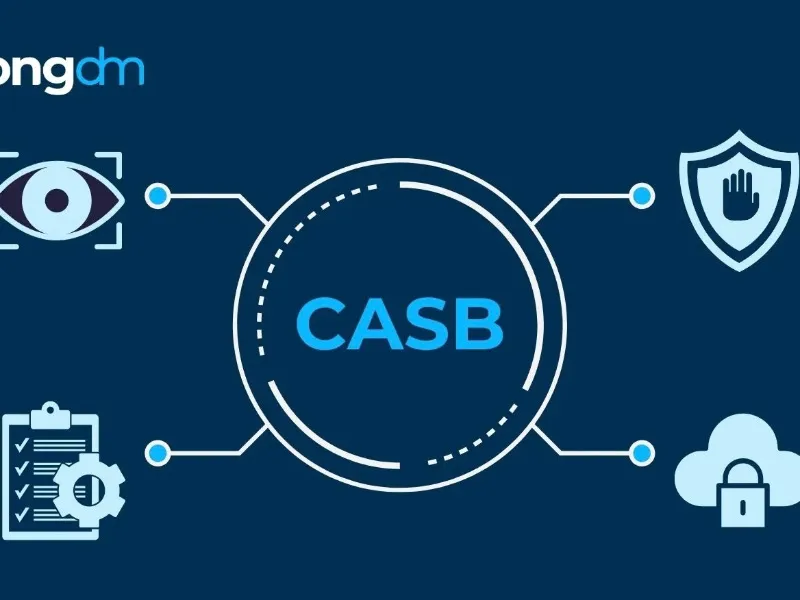- CASBs serve as intermediaries between cloud service users and providers, offering enhanced visibility, control, and data protection.
- One primary function of a CASB is providing visibility into cloud service usage.
A Cloud Access Security Broker (CASB) is a vital security tool designed to address the challenges associated with cloud computing. As businesses increasingly adopt cloud services for their flexibility and scalability, ensuring the security of sensitive data and maintaining regulatory compliance becomes paramount. CASBs serve as intermediaries between cloud service users and providers, offering enhanced visibility, control, and data protection.
Also read: What is cloud security?
Core functions of CASBs
One primary function of a CASB is providing visibility into cloud service usage. Organisations often struggle with “shadow IT,” where employees use unauthorised cloud services without the IT department’s knowledge. CASBs help identify these services, monitor usage patterns, and ensure that all cloud activities align with the organisation’s security policies. This visibility is crucial for understanding who is accessing data, from where, and under what circumstances.
CASBs also play a vital role in protecting sensitive data in the cloud. They offer data loss prevention (DLP) capabilities, which help detect and prevent unauthorised sharing or leakage of sensitive information. This is especially important for industries handling confidential data, such as healthcare and finance. CASBs enforce encryption, tokenisation, and other data protection measures to ensure data security both at rest and in transit.
Protecting against threats is another critical aspect of CASB functionality. Cloud services can be vulnerable to various cyber threats, including malware, ransomware, and phishing attacks. CASBs provide threat protection by analysing cloud traffic for suspicious activity, identifying and mitigating potential threats, and ensuring that cloud applications are secure. They also integrate with existing security tools to provide comprehensive defense against cyber threats.
Regulatory compliance is a major concern for organisations using cloud services. Different industries are subject to various regulations, such as GDPR, HIPAA, and PCI DSS, which mandate stringent data protection measures. CASBs help organisations meet these compliance requirements by providing the necessary controls and reporting capabilities. They ensure that cloud usage adheres to regulatory standards and assist in auditing and generating compliance reports.
Why CASBs are important
The growing adoption of cloud services has made CASBs indispensable for modern enterprises. They significantly enhance an organisation’s security posture by providing comprehensive visibility, data protection, and threat defense for cloud services, helping mitigate risks associated with cloud adoption. CASBs allow organisations to enforce security policies consistently across all cloud services, ensuring that security controls are uniformly applied and reducing the chances of policy violations.
By monitoring cloud service usage, CASBs provide valuable insights into user behavior. This helps identify potential insider threats and unusual activity patterns that could indicate a security breach. Implementing a CASB can also be more cost-effective than managing multiple security solutions for different cloud services. CASBs offer a unified platform for securing various cloud environments, streamlining security management, and reducing operational costs.
Examples of CASB solutions
Several vendors offer robust CASB solutions tailored to meet the diverse needs of organisations. Leading CASB providers include McAfee MVISION Cloud, known for its comprehensive data protection and threat prevention capabilities; Microsoft Cloud App Security, which integrates seamlessly with Microsoft’s cloud services and provides extensive visibility, threat detection, and policy enforcement features; and Netskope, offering advanced data protection, real-time activity monitoring, and threat protection for cloud services, making it a popular choice for enterprises.
CASBs are essential tools for securing cloud environments. They offer critical functionalities such as visibility, data protection, threat defense, and compliance management, helping organisations navigate the complexities of cloud security and ensuring the safe and efficient use of cloud services.

